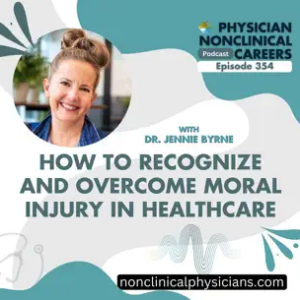Are you a psychiatry resident? Working at your first or second job?
Are you feeling the pressure of family planning and parental responsibilities?
Are you a caregiver? Supporting a partner or spouse?
Are you paying your student loans and facing piles of bills?
If you answered YES to these questions, you are likely feeling tired, overwhelmed, and confused. Leadership may sound like a nice concept that feels completely impossible in your reality. At the executive council meeting in September, I was fortunate to get feedback from some early career psychiatrists who were new to the council. They expressed frustration that the NCPA is out of touch with the concerns and priorities of young psychiatrists, and this was reflected in overly optimistic newsletter articles. Ouch.
While there are many reasons that the newsletter articles focus on positive change and optimism, I think the criticism is valid. In these articles, NCPA leaders are looking to inspire and spread the word about the good work psychiatrists are doing in our state. The articles do not address the suffering, challenges, obstacles, pressures, and sheer exhaustion that young psychiatrists often face. Today, I would like to share my perspective on being an early career psychiatrist and what I believe leadership can mean in the “Rush Hour of Life”.
When I was in residency on the Upper East Side in New York City, life was tough. A typical work week was 60 hours long for my non-physician friends, and about 80-100 hours long for residents. Thanks to a prolonged education and living expenses in NYC, I was buried in a mountain of debt. Maintaining a serious relationship was difficult, but I did manage to meet a wonderful partner and get married during residency (ask me about ridiculous wedding registry items selected during a sleepless overnight call in the ER). I continued to work extra hours doing clinical research while knowing in my heart that I was never going to pursue my dream of becoming a researcher. As a resident, my son was born extremely premature and spent 9 weeks in the NICU. My grandmother was visiting NYC and had a stroke and I had to care for her in the ER. Right before completing residency, I became pregnant en route to my first job and first house in NC. During the move, we were on a vacation with family when my grandmother had a heart attack in front of me and I did CPR, she lived another day before dying at the beach. We arrived in NC during the 2008 recession and my daughter was also born premature, spending 2 weeks in the NICU, and I had to return to work after 9 days to pay our nanny bills.
I am sharing this story because I, like many of you, was in the Rush Hour of Life. What is the Rush Hour of Life? In the past, life events spaced out. You went to (much less) school, got married young, had children young, and then as your children were grown you were just starting to reach the peak of your career. Then you reached a solid professional plateau before your parents started to age and need care. You didn’t typically have debt because only people with wealth went to college or medical school. Physicians were respected, well-paid, autonomous members of society. The health care system seemed stable with minimal complexity. Psychiatrists were typically male and had a wife at home to take care of the household and family responsibilities.
Today it can all happen at once. You can be finishing your education, getting married, having children, paying debt, buying your first home, taking care of your parents, trying to support a partner who is also working full-time with debt! This is why it is the Rush Hour of Life. When you are in the Rush Hour of Life it becomes even harder to deal with the constant change and burdens of our current health care system. Despite all of these obstacles, our young psychiatrists persist.
I believe that if you are a young psychiatrist reading this article, you have already demonstrated leadership. You have chosen a difficult path to help some of the most fragile members of our community. You are often not paid as well as your physician colleagues. You may feel undervalued and disrespected in your health care system. You might be buried in a mountain of debt. You may wonder – how can I be a leader?
When young psychiatrists ask me for advice around leadership, here are the top 5 strategies I share:
1) Be a team leader. In most health care settings, the physician is asked to lead a health care team with nurses, PAs, med students, social workers, etc. Step up and lead your team. Do not do it all yourself! Focus on delegation and efficient use of everyone’s time.
2) Lead at home and with your family. If you are in the Rush Hour of Life, there is no way that you can be responsible for 100% of the home and family tasks! This can be particularly difficult for female psychiatrists who feel social pressure to do it all. Delegation and efficiency can make a big difference.
3) Take ownership over your finances. Money is a painful topic and physicians are notoriously bad financial managers. Negotiating the salary and terms of your current or next position can make a huge difference in your ability to feel like a leader rather than a cog in a machine.
4) Walk the walk. Behavior often speaks louder than words. Would you counsel your patient to stay in a job that treats them poorly without speaking up to improve the workplace, without sleeping, without exercising, without eating well, and without advocating for themselves? Sometimes leading by example is the most difficult, but the most powerful type of leadership.
5) Get support from the NCPA! If your employer is not already doing so, ask them to sponsor your membership. Let us know if you need more talking points on how to negotiate for this employment benefit.
I hope that all the early career psychiatrists in the Rush Hour of Life feel supported by the team here at NCPA. Whether my story resonated with you or not, I value any and all feedback you have. Please email me anytime at dr.jennie.byrne@gmail.com!







